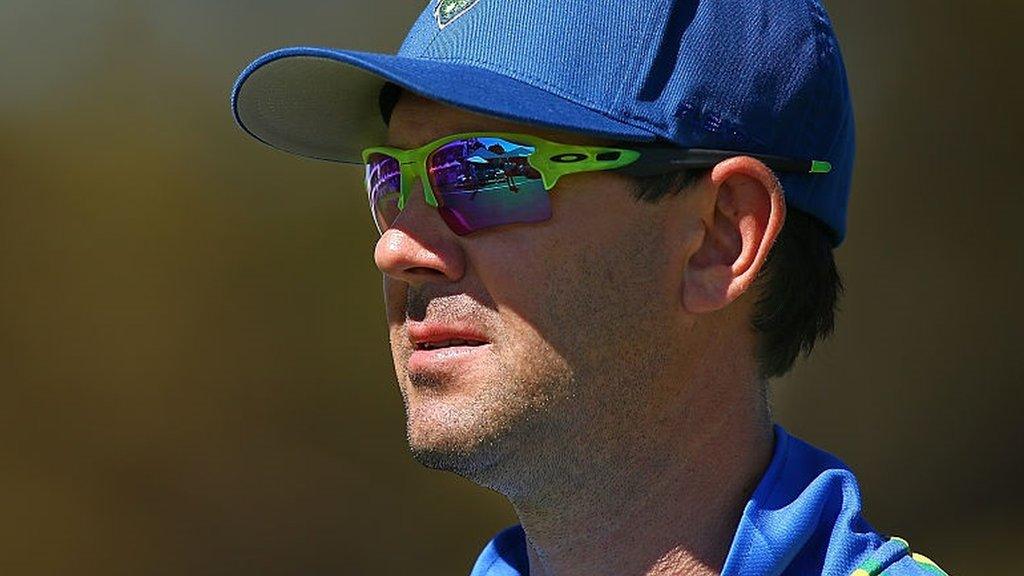David Warner: Australian batsman achieves rare Test feat with rapid century
- Published

David Warner celebrates his century in Sydney
David Warner became only the fifth batsman to hit a century before lunch on the opening day of a Test match as Australia dominated against Pakistan.
The 30-year-old reached three figures off 78 balls as the hosts took control of the third Test match in Sydney.
Warner, who was out for 113, is the first batsman to hit a century in the opening session of a Test in Australia.
Fellow opener Matt Renshaw, 20, scored his first Test century, ending unbeaten on 167 to help Australia reach 365-3.
Renshaw, who was born in England, shared an opening stand of 151 with Warner and went on to bring up his century off 201 balls, despite being struck on the helmet by Mohammad Amir.
Warner, meanwhile, smashed 17 fours to reach his hundred four minutes before lunch, falling to Wahab Riaz soon after the interval.
He follows fellow Australians Victor Trumper, Charles Macartney and Donald Bradman, and Pakistan's Majid Khan, in achieving the feat.

Batsmen who have scored centuries before lunch on day one of a Test match:
David Warner (Australia) v Pakistan, Sydney, 2017
Majid Khan (Pakistan) v New Zealand, Karachi, 1976
Donald Bradman (Australia) v England, Leeds, 1930
Charles Macartney (Australia) v England, Leeds, 1926
Victor Trumper (Australia) v England, Manchester, 1902

It is the fourth time Warner has made a Test century in fewer than 100 balls, and his third consecutive ton in Tests at the Sydney Cricket Ground.
"It's a honour and privilege to be amongst the greats of the game," he said.
"It wasn't something in the back of my mind to go out and score a 100 in a session. It was about going out there with intent and batting positive."
Bill Lawry, commentating on Australia's Nine Network, described it as a "great moment for Test cricket".
Warner's feat also won widespread praise from fans, including champion wheelchair racer Kurt Fearnley.

Australian Paralympian Kurt Fearnley enjoyed Warner's knock
Australia lead the three-match series 2-0.
- Attribution
- Published1 January 2017

- Attribution
- Published30 December 2016
